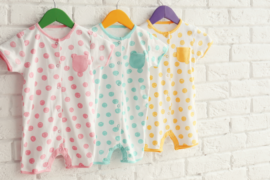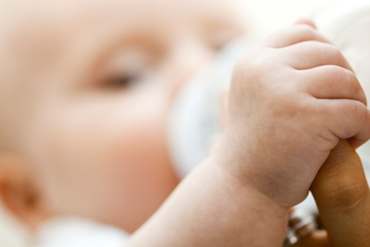You and your baby will begin to have two-way “conversations” after the newborn period. From the earliest grins, gurgles, and coos to learning to speak “mama” or “dada,” newborns enjoy communicating in their own language. And they are hoping you will “baby speak” back.
There are a lot of things you can do to help your baby’s communication abilities over the first year. And it is simple. You just need to smile, chat, sing and read to your child.
Why should you concentrate on talking with your baby? Because early speech and language abilities are linked to subsequent success in reading, writing, and interpersonal skills development, both in childhood and later in life.
A Guide to Babies’ Speech: What you need to know?
What Language Do Babies Use?
Crying remains a baby’s primary mode of communication, alerting parents to the fact that they need assistance. They may still have fussy spells or scream when overwhelmed by the world’s sights and noises.
When your baby hears your voice, they will turn their head and become silent, smile, or get enthusiastic and move their arms and legs. When you grin, your baby may reciprocate.
Babies are learning to create sounds, and you will soon have a cooing and gurgling machine! Your baby will communicate with you via a range of noises. During this stage, newborns begin to produce vowel sounds (such as “ah-ah” or “ooh-ooh”).

What Can a Parent Do?
Interact with your infant often. Your infant enjoys hearing your voice. So, throughout these first two months, chat, read, sing, and coo away. Respond to your baby’s noises and smiles heartily. Inform your kid of what they are looking at or doing, as well as what you are doing. As you touch or present familiar items to your infant, name them.
Hold “conversations” with your child. If your infant makes a sound, repeat it, and wait for a response. When you converse to someone else, you are teaching your infant important lessons about tone, tempo, and taking turns. This also conveys the notion that your infant is significant enough to warrant your attention. When your infant is “talking,” do not interrupt or turn away; instead, indicate that you are engaged and that your child can trust you.
Recognize when your infant needs time alone. Babies are not always in the mood to converse or vocalise. They may need a respite from all the excitement. Babies may withdraw, shut their eyes, become fussy, or angry. If this occurs, allow your child to relax or try snuggling.

Is my baby crying excessively?
Most newborns have a fussy phase every day around the same time, which commonly starts in the early evening. Though all babies scream and may be irritable, colic occurs when an otherwise healthy baby cries for more than 3 hours per day, more than 3 days per week, for at least 3 weeks.
This may be unpleasant, but the good news is that most newborns outgrow it by the age of three or four months.

When Should I Call the Doctor?
During the first year, the baby should coo, gurgle, and begin to babble in response to your baby talk. They should answer to “no,” “my name,” and basic requests such as “come here.”
While normal language development varies widely, it is best to be safe than sorry when it comes to your child’s development. At each well-baby exam, have your baby’s speech evaluated, and consult with your baby’s doctor if you are worried about delayed speech or hearing impairment. Remember that your baby enjoys hearing your voice, so do not be embarrassed by your “silly” baby babble.








